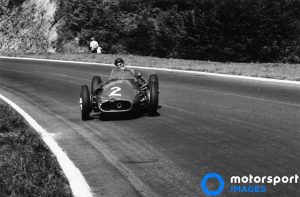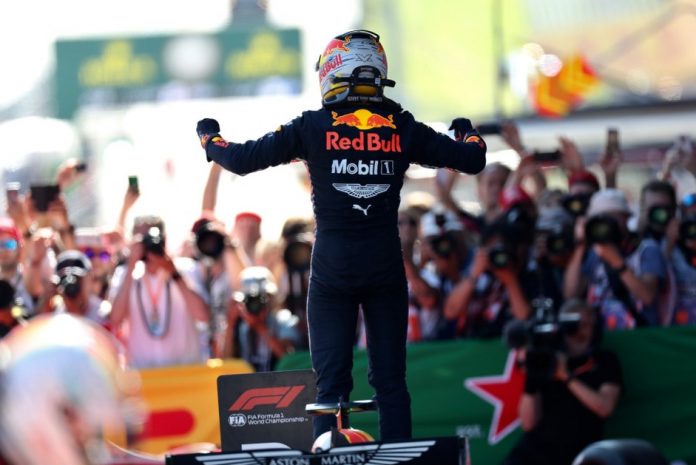Part two of Insider Sport’s discussion with Motorsport Network’s president, James Allen, delves into the topic of sports-specific services and how this growing business strategy has become more prominent in recent years.
Motorsport Network spans across a variety of sectors through its brands with the company creating an OTT platform (Motorsport.tv) and a production firm (Motorsport Studios), whilst also delving into image rights (Motorsport Images), games design (Motorsport Games) and even content. Whilst these brands all branch into different avenues, they all circulate around the core concept of engaging audiences through the medium of motorsport.
Allen highlighted that the rise of sport-specific services, like Motorsport Network, could be caused by the growing need for specific direct-to-consumer content. This means teams and athletes can opt to push content through a service which directly identifies with its audience instead of going through traditional broadcasters or mediums. However, he also warned that it is still important to work with rights holders and collaborate with traditional broadcasters.
“I think there’s multiple layers to this. The first one is obviously that there’s a general move towards direct to consumer. The idea of needing the BBC or Channel Four or Sky to bring you the series that you want to watch has been around for a long time,” he emphasised. “The technology has been there for a little while now to go direct to consumers. There’s a clear appetite to do that.
“If you’re a series rights holder on your own, however big you are, if you set up your own OTT platform that’s great and you can reach different geographies, but you’ve obviously got to think carefully about how you work that with your broadcasters who buy your rights, particularly if they’re very valuable.
“What we do on Motorsport.tv is we create like a shopping centre for people that want to see videos about cars and racing, and then you can just put really nice flagship stores within that shopping centre, because the point is people are coming to the shopping centre because they want to be in a shopping centre. So you’ve got all of these different channels, you’ve got all these different brands, you’ve got all these different things going on. It’s grouping them all together.

“We like to think one of the things that is unique about us is that we have unique convening power across our industry. Because we are in all aspects of motorsport, we cover that because audiences come to get close to the sport to feed their passion. Then when they are there, there’s lots of other things that they get introduced to within that space. So I think that kind of model makes a lot of sense.”
The sports-specific approach not only provides fans of the sector with all the content they need in an omni-channel format, but manufacturers and teams in the motorsport industry, such as Mercedes, also benefit by gaining valuable assets to enhance their own content. Motorsport Network has created an audience specifically looking for motorsport and automotive content and so for brands looking to tap into that market, sports-specific services offer a destination to directly impact that demographic.
Motorsport Network’s president explained: “Mercedes obviously want to reach as many people as they can, they’re number one in terms of engagement. They’ve really pushed on and they’ve got nearly 20 million social followers and a 35 per cent market share of a fan following in terms of social media. So they’re pretty good at what they’re doing and they obviously want to make sure they can reach fans in many different places.
“We offer them the chance to do that and we work with them in terms of imagery and that sort of thing. We’ve got photos going right back to the dawn of the car and the first ever Grand Prix in 1906.
“The other thing about all of this is that sport isn’t just a live event. The live event, we all love, of course, but it’s not just a live event and if you look at the pattern over the last few years, and think about how much rich content is generated around the sport, whether by the competitors themselves or the teams or by independent media, that’s all rich storytelling that needs rich assets to go with it.
“So that’s what our proposition is with Motorsport Studios, we have all these images, we have a lot of video and we have the archive that content creators can use. we also have the distribution to go with it.”
Whilst Allen recognises that COVID-19 has been a challenging year for motorsport, the rise of sim-racing and other fan engagement opportunities have helped the sector during this tumultuous year. Moreover, the rise of sport-specific services have offered fans and manufacturers another avenue to engage in a range of content.
Looking to the future, the Motorsport Network president mentioned that the plan is to continue developing its brands in order to create content for the automotive and motorsport industry, to ensure that stories continue to be told in this ever evolving industry.
Allen stated: “We’ve built a really strong platform over the last three, four years. We’re the market leader, as far as the motorsport media space is concerned so for us the development and the plans for the future is to continue helping the brands in racing and automotive to tell their stories, to make sure that fans get the content that they want.
“Because we’ve got a 56 million monthly audience and growing we understand the fans and we have a holistic understanding of their behaviour and what they like and what they want. We can use that to help brands and series to tell us stories.
“But beyond that, the other thing that’s important to recognise is that both the automotive and racing industries are really at a point of change. I mean you think about how the car industry is facing the next 5/10 years. A lot of governments are going to ban petrol engines and diesel engines and all that sort of thing and the automotive industry is in a period of massive, massive change.
“So the plan is to keep helping the motorsport and automotive industries and to tell those stories. Because we have the convening power on the platforms and the content to do it. That’s, that’s our ambition. That’s our goal.”
























